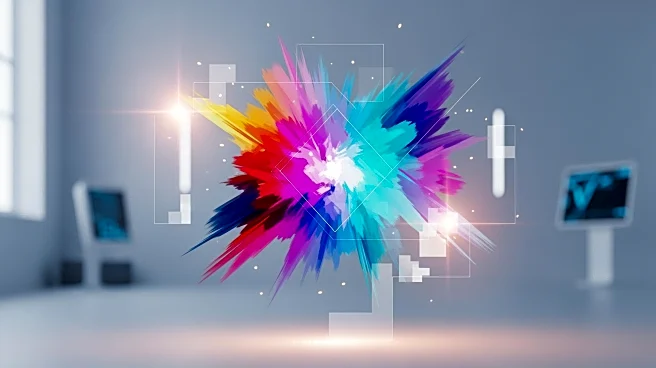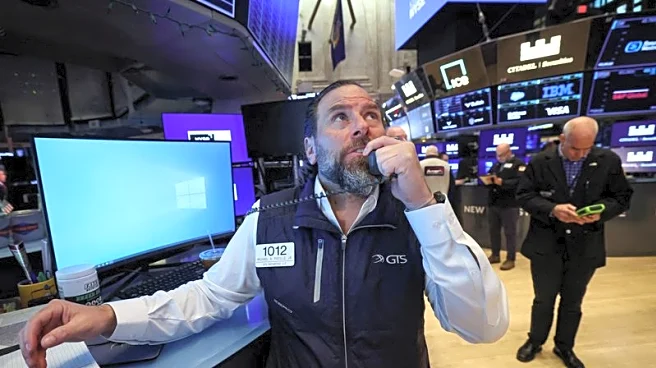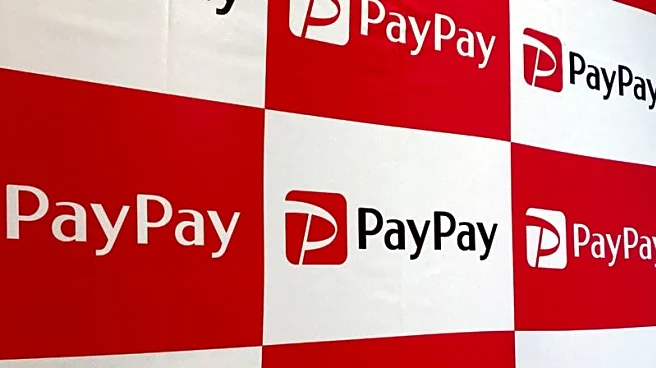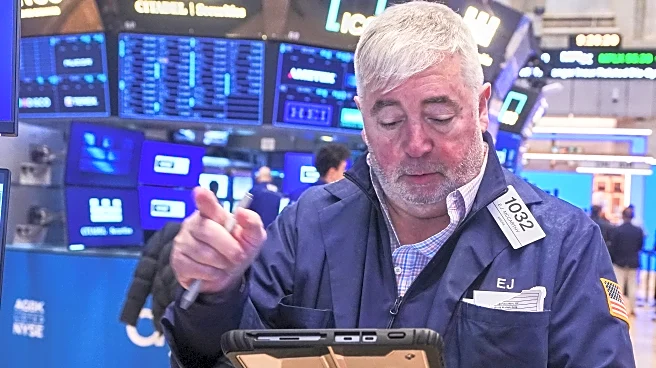What's Happening?
Telisha 'Nikki' Jones, a 31-year-old Mississippi native, has created an AI music artist named Xania Monet, who has achieved significant success by debuting on Billboard radio charts. Jones, who is not
a singer herself, uses her own poems and experiences to generate lyrics for Monet's songs. Her chart-topping song, 'How Was I Supposed to Know?', was inspired by the loss of her father at a young age. Monet is recognized as the first AI artist to earn enough radio airplay to debut on a Billboard chart, appearing on multiple charts since her first release. Jones uses AI music-generator apps to transform her poems into songs, mixing her love for music with technology.
Why It's Important?
The success of Xania Monet highlights the growing influence of artificial intelligence in the music industry, challenging traditional norms and offering new opportunities for creators. AI technology allows individuals like Jones, who may not have traditional musical skills, to produce and share their art with a wider audience. This development could democratize music creation, breaking down barriers related to age, image, and access. However, it also raises questions about authenticity and the role of AI in creative spaces, as evidenced by criticism from artists like Kehlani. The industry must navigate these challenges while embracing innovation.
What's Next?
Jones has secured a multi-million dollar exclusive recording deal with Hallwood Media, indicating continued investment and interest in AI-driven music. As AI technology evolves, it is likely to further disrupt the music industry, prompting discussions about the ethical implications of AI in art. Artists, record labels, and audiences will need to adapt to this new era, balancing innovation with respect for traditional creative processes. The reception of AI artists like Xania Monet will influence future developments in music production and distribution.
Beyond the Headlines
The rise of AI artists like Xania Monet could lead to broader cultural shifts, as technology enables diverse voices to enter the music industry. This democratization may foster greater inclusivity, allowing creators from various backgrounds to share their stories. However, it also poses ethical questions about cultural appropriation and the authenticity of AI-generated art. As AI becomes more prevalent, society will need to address these concerns, ensuring that technology serves as a tool for empowerment rather than exploitation.










